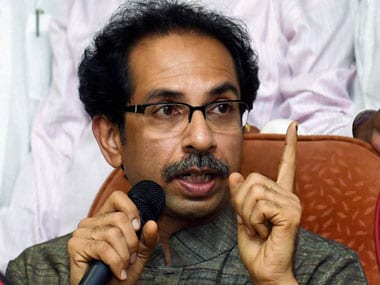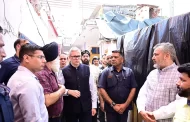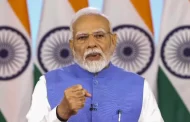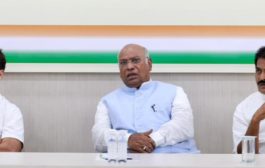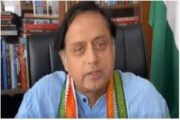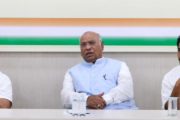With the electoral losses in Rajasthan, MP and Chhattisgarh blamed partially on GST, the BJP is scrambling to offer solutions.

On Tuesday, Prime Minister Narendra Modi announced that his government was planning to cut rates in the Goods and Services Tax system, which was introduced in July 2017 to replace a slew of indirect taxes. Currently, the tax operates in five slabs – 0%, 5%, 12%, 18% and 28%. Modi proposed to prune the number of items taxed at the highest rate. “All items used by the common man – over 99% of them, all except luxury goods – will come under 18% or lower tax slab,” Modi said. Currently, goods such as cement, motorcycles and shaving cream fall in the 28% slab.
GST significantly reduces household budget, tax rates have come down on 83 items including daily use items. pic.twitter.com/bGH6KLnmht
— BJP (@BJP4India) December 18, 2018
Small businesses hit
Over the past year, there have been several reports of problems caused by the red tape-heavy Goods and Services Tax regime. While large corporations managed to tackle the tax and its complicated processes, smaller companies – the country’s main non-agricultural employers – found it difficult to cope. For example, the textile hubs of Surat in Gujarat and Tirupur in Tamil Nadu took a big hit. A survey by the All India Trade Union Congress in July found that a fifth of India’s 63 million small businesses had suffered a 20% fall in profits since the Goods and Services Tax was introduced. This forced them to fire lakhs of employees. Another survey published in December by the All India Manufacturers’ Organisation of traders as well as micro, small and medium enterprises reported large-scale job losses and falling profits as a result of the tax.
In the red
Yet, while the problem is apparent, the solution might not be. A rate cut would help ameliorate matters but there might be little room to manoeuvre, given the significant shortfall in Goods and Services Tax revenue. While this revenue was projected to be Rs 1.12 lakh crore per month for 2018-’19 in February’s Union Budget, there has not been a single month this financial year that has met this target.
In November, the State Bank of India predicted indirect taxes would fall short by Rs 90,000 crore in the current financial year as a result of the poor performance of the Goods and Services Tax. Brokerage firm CLSA projected a shortfall of Rs 1,00,000 crore in revenue from the tax. To put these number in perspective, the Union government’s allocation for 2018-’19 to the National Rural Employment Guarantee Scheme – the world’s largest social security programme that promises rural households in India 100 days of work in a year – was Rs 55,000 crore.
The shortfall resulted in Union Finance Secretary Hashmukh Adhia sending tax officials a note in June commenting on the low number of returns filed. In December, the Union revenue secretary announced targeted action against anyone dodging the Goods and Services Tax.
New GST Council
Falling revenue is not the only check on Modi’s plans to cut rates. New Congress governments in Rajasthan, Madhya Pradesh and Chhattisgarh will result in a rejigging of the composition of the Goods and Services Tax Council, which decides on tax rates. This means the BJP will not be able to pass a resolution without the help of at least three states ruled by the Opposition. Until now, every decision of the council was passed by consensus but the new arrangements might result in a few more challenges from the Opposition. In fact, the new chief minister of Madhya Pradesh, Kamal Nath, said in an interview on December 13 that the Congress would “campaign against the kind of Goods and Services Tax he [Modi] has brought in”.
Modi had launched the tax at a special midnight session of Parliament, arguing that it would help the poor of the country. It was clear that he hoped to take political credit for the move. The Congress, Dravida Munnetra Kazhagam, Trinamool Congress and the Left had boycotted the event. Since then, given the distress the tax regime has caused, Modi has been on the back foot and has sought to temper his ownership of the decision to introduce it. While campaigning in Gujarat in October 2017 ahead of Assembly elections, Modi called the Congress “an equal partner in Goods and Services Tax decisions”.
By contrast, Congress president Rahul Gandhi has repeatedly called the tax a “Gabbar Singh Tax”, referring to the famous Bollywood dacoit. With Modi announcing that rates might be cut, the Congress was quick to take credit for the idea with party leader Randeep Singh Surjewala tweeting:
In Opposition:BJP opposes GST for 5 years
In Govt:BJP forces flawed GST with multiple rates
In Oppo:Congress demanded ONE rate not exceeding 18%
In Govt:Gabbar Singh Tax by BJP
Post BJP drubbing in 3 States
Finally,some relief for distressed shopkeepers!
Or Another Jumla? pic.twitter.com/Avw2LtdfcI
— Randeep Singh Surjewala (@rssurjewala) December 19, 2018
In May, Malaysia’s voters delivered a shock verdict, unseating the Barisan Nasional coalition after six decades in power. A major factor behind the verdict was the introduction of a Goods and Services Tax three years ago. To make the comparison even more uncomfortable for the BJP, Malaysia’s Goods and Services Tax was simpler and less burdensome than India’s – it had one 6% slab for all goods and services. The state election verdicts, and probably the Malaysia poll results as well, will be at the back of Modi’s mind as he decides his Goods and Services Tax strategy for the Lok Sabha elections in 2019.

